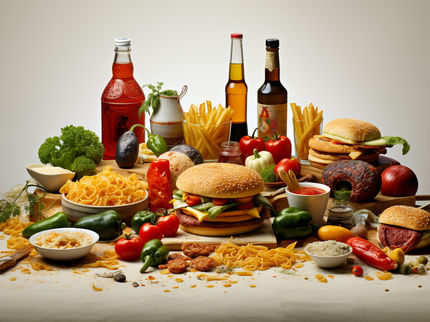Resilience towards food addiction
Advertisement
Overconsumption of hypercaloric and highly palatable food was evolutionarily advantageous when food was scarce, aiming at increasing the success of survival. Nowadays, however, caused by the easy access of caloric dense food and stress-induced eating, this physiological strategy has become detrimental, finally promoting obesity, metabolic syndrome or eating disorders. Interestingly, not all individuals do develop addiction towards highly palatable food; some are resilient and others are vulnerable.

Photo by Jayden Sim on Unsplash
A study recently published in “Nature Communications” investigated the neuronal brain circuit and signalling systems underlying these processes.
The research teams of Prof. Beat Lutz (Institute of Physiological Chemistry, University Medical Center, and Leibniz Institute for Resilience Research in Mainz), Prof. Rafael Maldonado (UPF Barcelona, Spain), and Prof. Susanne Gerber (Johannes Gutenberg University, Mainz) report on how the lipid signalling via endocannabinoids and the neurotransmitter dopamine contribute to food addiction via activation of cannabinoid CB1 and dopamine D2 receptors in the prefrontal cortex.
The authors investigated the behaviour of mutant mice lacking the CB1 receptor in cortical excitatory neurons on a food addiction operant model. This operant model, where mice can self-administrate chocolate-flavoured pellets, allows to measure three food addiction-like criteria: Motivation, impulsivity and compulsive behaviour. Notable, CB1 receptor mutant mice showed a resilient phenotype against food addiction in these three criteria. The mutant mice also displayed an increased synaptic excitatory activity in the prefrontal cortex as well as in the nucleus accumbens, a brain region that is part of the reward system. The prefrontal cortex sends dense projections to the nucleus accumbens. Selective genetic manipulations to decrease the excitability of these prefrontal cortical projection neurons to the nucleus accumbens led to a vulnerable phenotype to develop food addiction. Transcriptomic profiling of the prefrontal cortex in resilient and vulnerable mice revealed an enhanced dopamine D2 receptor gene expression in addicted mice. Based on these insights, the overexpression of D2 dopamine receptor in projection neurons, from the prefrontal cortex to the nucleus accumbens, in naïve mice shifted behaviour towards increased incidence to develop food addiction showing a compulsive food seeking, a hallmark of addiction.
In summary, the study deciphered a new role of the prefrontal cortex in food addiction via the control of glutamatergic transmission in the nucleus accumbens. A reduced excitatory neuronal activity in the prefrontal cortex leads to the loss of control and promotes vulnerability to food addiction-like behaviour in mice. These new insights could pave the road to develop new therapeutic approaches to binge-eating disorders, such by using transcranial magnetic stimulation in patients.
Original publication
Domingo-Rodriguez L1, Ruiz de Azua I1, Dominguez E, Senabre E, Serra I, Kummer S, Navandar M, Baddenhausen S, Hofmann C, Andero R, Gerber S, Navarrete M, Dierssen M, Lutz B2, Martín-García E2, Maldonado R2 (2020) A specific prelimbic-nucleus accumbens pathway controls resilience versus vulnerability to food addiction. Nat Commun 11:782.
























































